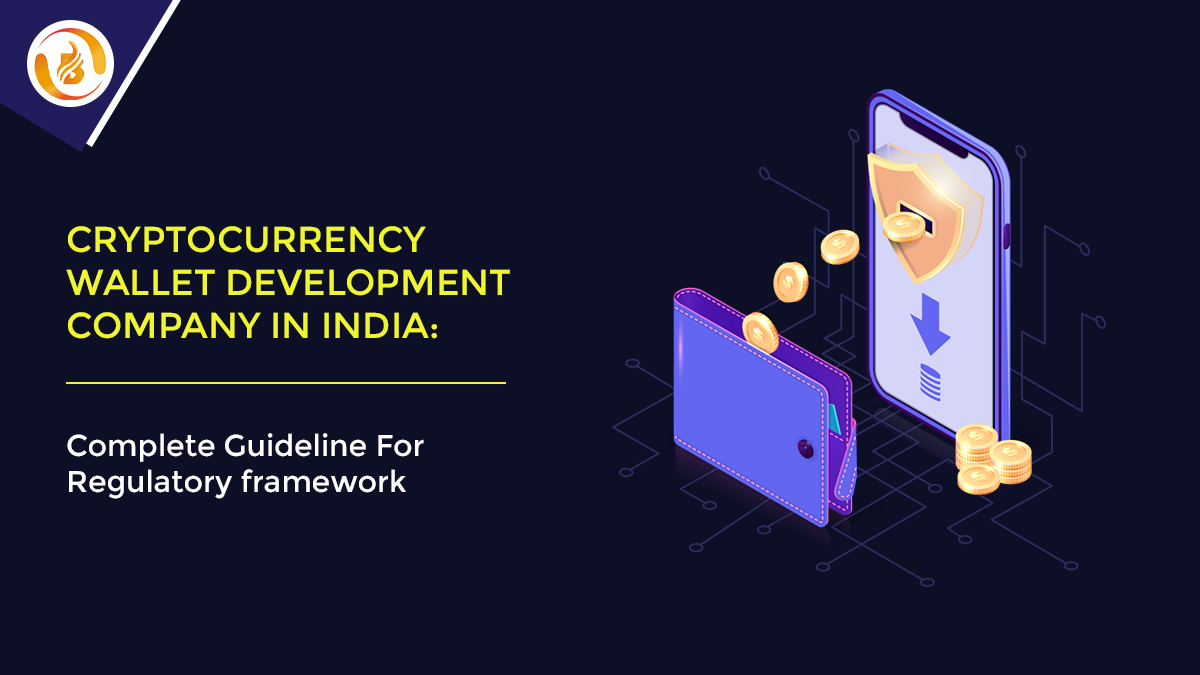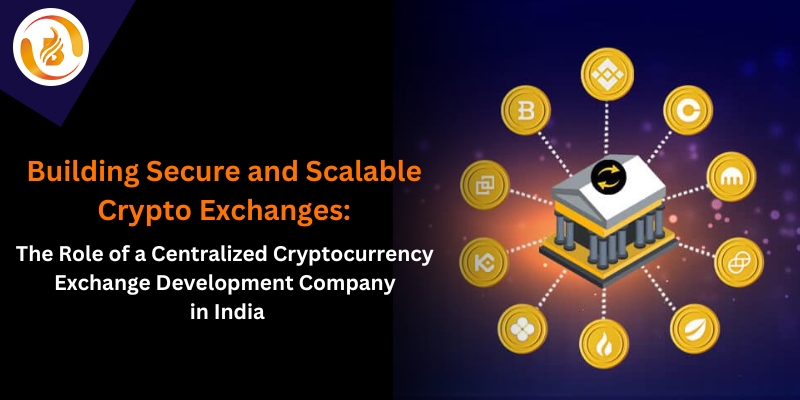Introduction
We are halfway through 2025 now, and this year, a significant number of digital currencies, such as Bitcoin and Ethereum, have experienced considerable growth. There is even a greater need for safe and easy-to-use cryptocurrency wallets with this increased interest. All crypto traders need to understand how these crypto wallets operate and how to create their own Wallet, whether they have experience in crypto trading or not.
In this blog, we will cover everything you need to understand when creating cryptocurrency wallets. You will learn about the various kinds of wallets, key characteristics, development processes, costs, and ways to choose the best crypto wallet development company in India.
Understanding Crypto Wallets and Their Role in 2025
Crypto wallets are digital wallets in which you can safely store, send and receive cryptocurrencies. It doesn’t hold the money, but the private keys that provide you with access to it through the blockchain.
In 2025, crypto wallets will be more than just storage products. They are presently decentralized applications (dApps), NFT sites, DeFi services, and so forth.
Types of Crypto Wallets
Custodial Wallets: An organization controls this Wallet and its keys.
Non-custodial Wallets: The private keys are only accessible by the users in non-custodial wallets. Also, it offers more control and protection.
Dependent on Internet Access:
Hot Wallets: Internet-connected all the time. Easy to use, but much less secure.
Cold wallets: They operate offline for safety purposes. So that you can make use of it for long-term storage.
Key Features to Include in a Cryptocurrency Wallet
Earlier, wallets were not secure, but now digital wallets are safer and more reliable. These are the essentials that are a must for 2025:
Multiple Coin Support: Wallets must be capable of handling a vast number of coins and tokens.
Robust security: Biometric authentication, such as fingerprint or face recognition, followed by two-factor authentication and private key encryption.
Integrated staking and swapping: Swapping and staking are highly required since users can exchange money or earn rewards through staking within the Wallet.
Real-time updates: This provides access to up-to-date information on balances, transactions, and cryptocurrency prices.
Accessibility across devices: Wallets ought to be accessible on mobile, desktop and online platforms.
Exceptional Design: A friendly interface is an essential element when dealing with wallet apps.
Types of Crypto Wallets
There are a few types of cryptocurrency wallets. Each has its specific purpose.
Mobile wallets: You download apps for your phone. Ideal for daily usage. For instance, take Trust Wallet.
Web wallets: Connected with internet browsers. Fast and easy, but insecure.
Desktop wallets: On a computer. Also, it gives more control and extra features.
Hardware wallets: These physical devices store your private keys offline for extreme security. Example: Ledger.
Paper wallets: Private keys were written on paper. The world these days is not very secure.
Brain wallets: You remember a passphrase instead of writing it down. Left to chance, it could be catastrophic.
The best wallet type is based on how often you utilize cryptocurrency.
The Crypto Wallet Development Process
Developing a mighty cryptocurrency wallet involves several essential steps. This is a concise overview:
1. Planning
- Define your objective
- Choose features and support.
- Analyze the market and rival businesses.
2. Designing the User Interface
Design a user-friendly interface with a friendly and responsive design for mobile, desktop, and the web.
3. Backend and Blockchain Integration
- Develop a secure server-side.
- Powerful Interface with blockchain networks.
- Implement the capability to send, receive, and store cryptocurrency.
4. Security Setup
- Encrypt the private keys.
- Implement two-factor authentication and biometric login.
- Implement anti-phishing and session control technologies.
5. Testing the Wallet
- Test all functionalities, including transactions.
- Perform security checks and fix any issues.
6. Launching and Supporting
- Publish the software online or via the App Store or Google Play Store.
- Following publication, offer updates and customer support.
- This end-to-end approach guarantees the Wallet runs smoothly, securely, and does what you expect it to do.
Major Technology stacks used by the best Crypto wallet development company in India:
To create secure and scalable wallets, users utilize various methods and tools:
- Frontend: Kotlin, React.js, Flutter, and Swift
- Backend: Node.js, Python, and Ruby on Rails
- Blockchains: Ethereum, BNB Chain, Polygon, and Solana
- Wallet SDK: Wallet Connect, Ethers.js, & Web3.js
- Security: Argon2, JWT, & OpenSSL
- DB: Redis, PostgreSQL & MongoDB
The Wallet will be fast, secure, and scalable if the right technology is utilized.
The Benefits of Choosing the Best Crypto Wallet Development Company in India:
There are several benefits of choosing a top-tier crypto wallet development company:
- Professional Developers: Teams with experience and knowledge of blockchain.
- Rapid Development: Reusable frameworks hasten the process.
- Specific Features: Solutions tailored to your needs.
- Lasting Assistance: Consistent updates, fixes and improvements.
- Regulations: They ought to be familiar with the laws that govern digital assets.
Employing experts allows you to create a wallet that consumers rely on and reduces the risk of errors.
Applications of Crypto Wallets in Various Industries
Crypto is utilized for more than trading. A Few examples are:
- Decentralized Finance or DeFi: Consumers manage savings, trades, and loans.
- NFTs: Buy/sell collectables and art.
- Gaming: Saving virtual currencies and in-game items.
- Internet-based buying: Pay for products using cryptocurrency.
- Payment: Transfer money instantly and at minimal expense anywhere globally.
Features need to be tailored to the particular wallet needs of each industry.
How to Determine the Best Crypto Wallet Development Company in India?
The following are the most essential points that guide you to hiring a top-notch crypto wallet developer for your wallet project:
- Check Experience: Verify their experience and client reviews.
- Understand Expertise: Seriously examine if they understand blockchain security or not.
- Customization: They must develop precisely what you need.
- Get cross-platform expertise: They must design for the web, iOS and Android.
- Ensure legal awareness: They must know about laws such as the General Data Protection Regulation (GDPR), the Markets in Crypto-Assets Regulation (MiCA), and the FATF.
Conclusion
In 2025, crypto wallets will have a dreamlike effect on digital currency storage. Regardless of what you’re developing, such as a DeFi network or an NFT platform, or simply allowing cryptocurrency payments, you need a secure and convenient wallet.
With the knowledge of making a crypto wallet, you can do it yourself. If you require a developer to create your Wallet, then evaluate a range of crypto wallet development firms and select the one that best meets your requirements.
Visit us at: www.biovustechnologies.com







